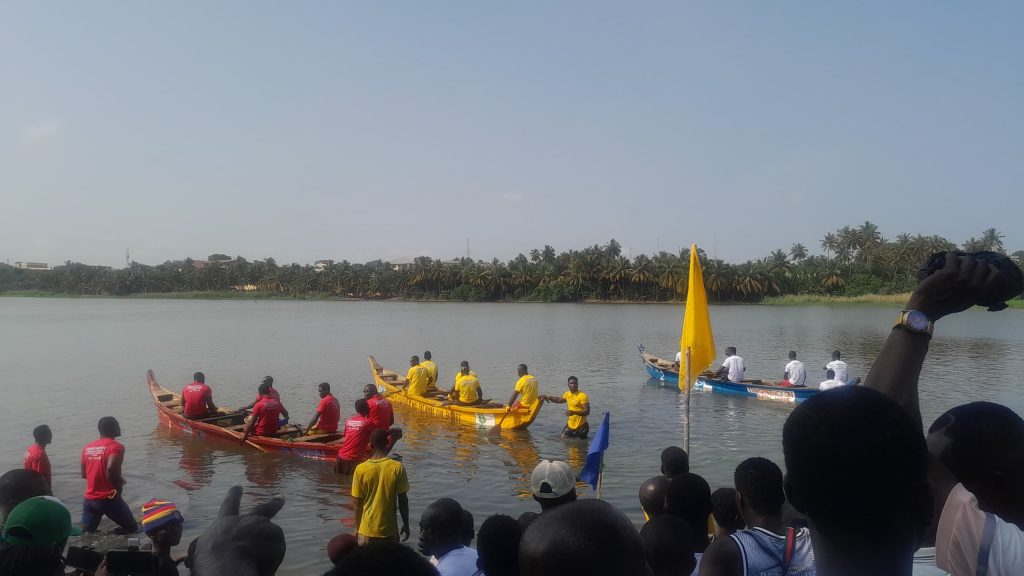By Isaac Arkoh
Cape Coast, Sept 04, GNA – Enthusiastic celebrants and traditionalists worldwide were treated to various exhilarating regatta to officially kick start the Oguaa Fetu Afahye festivities.
Fetu Afahye, an annual festival observed in the first week of September by Oguaa Chiefs and residents, serves as a commemoration of their forebearers and a unifying force for families both near and far.
The canoe race witnessed fierce competition among three of the seven Asafo companies, namely Bentsir, Nkum, and Anaafo.
Adorned in their respective traditional regalia of red, yellow, and blue and white respectively, they raced 200-metres on the 97.3-acre Fosu Lagoon with an average depth of 1.6 meters.
Eventually, the yellow warriors (Nkum) emerged victorious, securing their fifth consecutive win in the competition.
As the competitors were awarded medals and prizes, the streets reverberated with exuberant cheers and the rhythmic chants of Asafo war songs.
Of particular interest to many were the captivating “ampatampa” dancers, some of whom were Europeans dressed in the vibrant Asafo colours of choice for the first time.
Before the thrilling canoe race, the Oguaa Traditional Council conducted sacred rituals at the banks of the Fosu Lagoon, lifting the one-month ban on fishing and thereby initiating the week-long celebration of the festival.
Libations were poured to invoke the blessings of the gods upon Oguaaman and its inhabitants for a prosperous year ahead.
It was also aimed at seeking divine intervention for abundant fishing and agricultural yields and attracting investments for job creation for the teeming unemployed youth.
Earlier, the ceremonial proceedings, commenced with a grand procession of Chiefs, Queen mothers, traditional priests, and priestesses through the prominent streets of Cape Coast, with brief halts at sacred shrines for purification rites.

Adorned in black and red garments with green leaves (nyanya) adorning their heads and necks, the traditional leaders reached the Lagoon’s shores to the excitement of the teeming crowd who were waiting anxiously.
The casting of the Omanhen’s net, was performed thrice amidst musket salutes and incantations to determine the prospects of a bountiful harvest in the upcoming year.
The vibrant event culminated in a royal march to the Oguaamanhen, accompanied by traditional melodies, as the priests presented the fish caught in the Omanhen’s net to the deities as a gesture of gratitude for the anticipated harvest.
In separate interviews with the Ghana News Agency, some patrons emphasised the importance of all to abstain from violence and actions that could tarnish the festival’s essence.
They highlighted how culture and tradition were integral to a nation’s identity and developmental progress.
GNA